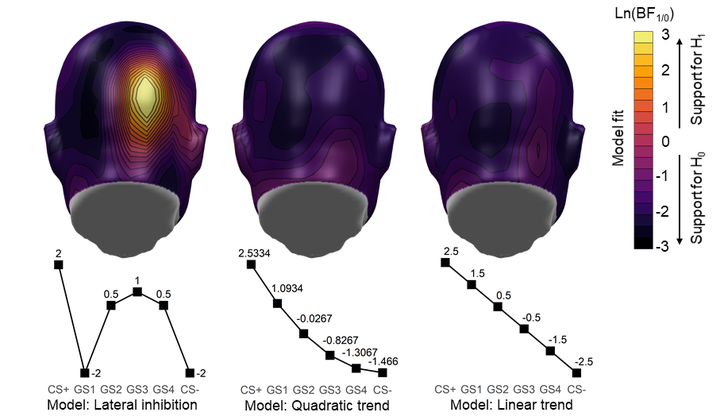Social aversive generalization learning sharpens the tuning of visuocortical neurons to facial identity cues

Abstract
Defensive system activation promotes heightened perception of threat signals, and excessive attention to threat signals has been discussed as a contributory factor in the etiology of anxiety disorders. However, a mechanistic account of attentional modulation during fear-relevant processes, especially during fear generalization remains elusive. To test the hypothesis that social fear generalization prompts sharpened tuning in the visuocortical representation of social threat cues, 67 healthy participants underwent differential fear conditioning, followed by a generalization test in which participants viewed faces varying in similarity with the threat-associated face. We found that generalization of social threat sharpens visuocortical tuning of social threat cues, whereas ratings of fearfulness showed generalization, linearly decreasing with decreasing similarity to the threat-associated face. Moreover, individuals who reported greater anxiety in social situations also showed heightened sharpened tuning of visuocortical neurons to facial identity cues, indicating the behavioral relevance of visuocortical tuning during generalization learning.